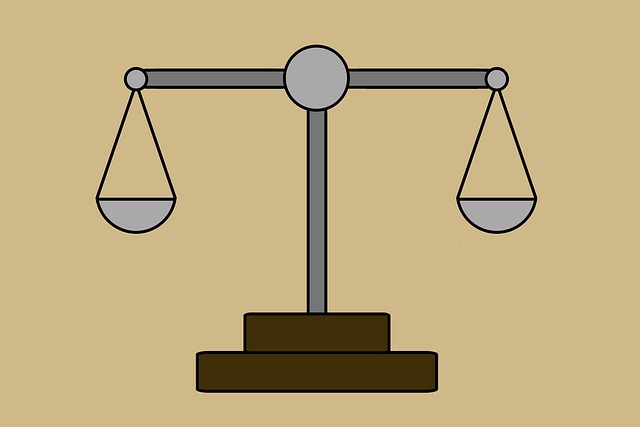Legal separation mediation is a collaborative, structured approach for couples divorcing amicably, avoiding litigation. It prioritizes open communication, reduces emotional and financial strain with transparent pricing (like fixed fees or unlimited sessions), and fosters mutually agreeable outcomes on child custody, spousal support, and asset division. This process begins with an initial consultation, continues through organized record-keeping and goal-setting, and culminates in a cost-effective, stress-reduced divorce solution tailored to individual needs. Professional mediation serves as a game changer, transforming complex issues into collaborative processes and promoting peace throughout the legal separation journey.
Professional divorce mediation services offer a peaceful alternative to litigation, enabling couples to navigate sensitive issues like child custody, spousal support, and asset division amicably. This article explores legal separation mediation as a powerful tool for settling divorces without court battles. We delve into its numerous benefits, the step-by-step process, preparation tips, common challenges, and real-life success stories, empowering couples to make informed decisions and foster positive outcomes in their divorce journeys.
- Understanding Legal Separation Mediation: An Alternative to Litigation
- Benefits of Choosing Mediation for Divorce Settlements
- The Process: How Mediation Sessions Work Step-by-Step
- Preparing for Mediation: Tips for Couples to Make the Most of the Process
- Common Challenges and How Mediators Facilitate Solutions
- Success Stories: Real-Life Examples of Amicable Divorces Through Mediation
Understanding Legal Separation Mediation: An Alternative to Litigation

Legal separation mediation is an alternative to litigation that allows couples to navigate their differences and reach agreements on crucial matters such as child custody, spousal support, and asset division outside of court. Unlike traditional divorce proceedings, which can be emotionally draining and financially costly, legal separation mediation encourages open communication and collaborative problem-solving. Mediators act as impartial third parties, guiding the couple through a structured process to arrive at mutually acceptable solutions.
This approach offers several advantages, including faster resolution times, less stress for all involved parties, and often more cost-effective outcomes. Unlike unlimited session divorce models where hourly billing can add up quickly, legal separation mediation typically features transparent pricing structures, allowing couples to understand the costs associated with the process from the outset. This transparency fosters trust and ensures both sides are on the same page as they work towards a future that aligns with their best interests and those of their family.
Benefits of Choosing Mediation for Divorce Settlements

Choosing mediation for divorce settlements offers numerous benefits to couples looking to navigate their separation amicably. Unlike litigation, which can be lengthy, costly, and emotionally draining, mediation provides a collaborative approach where both parties actively participate in reaching a mutually agreeable outcome. This process encourages open communication, fostering an environment where complex issues like child custody, spousal support, and asset division can be addressed with sensitivity and flexibility.
One of the key advantages is the cost-effectiveness it offers as compared to traditional legal services. With a one-time fee structure, couples avoid the hourly billing often associated with divorce proceedings. Moreover, mediation allows for unlimited sessions, ensuring that all aspects of the separation are thoroughly discussed until a resolution is reached. This model not only saves money but also promotes a more efficient and less stressful experience during what can be a challenging time for all involved.
The Process: How Mediation Sessions Work Step-by-Step

The process of legal separation mediation begins with an initial consultation where both parties meet with a qualified mediator. This neutral third party helps define the scope of issues to be addressed and establishes ground rules for the mediation sessions. The mediator ensures both sides feel comfortable expressing their needs and concerns openly, fostering a collaborative environment.
In subsequent sessions, the mediator facilitates direct communication between the couple, encouraging active listening and mutual understanding. Each party presents their perspective on child custody, spousal support, and asset division, allowing for a full exchange of information. The mediator helps identify common ground and explores creative solutions, aiming to reach an agreement that satisfies both individuals. Throughout this process, transparency and predictable cost mediation are key; the mediator typically charges a fixed fee or alternative structure instead of hourly billing, ensuring financial clarity during what can be a challenging time.
Preparing for Mediation: Tips for Couples to Make the Most of the Process

Preparing for legal separation mediation is a crucial step in reaching an amicable resolution without the high costs and stress of litigation. Before entering the process, couples should take time to gather their financial records, including tax returns, bank statements, retirement accounts, and any other assets or debts. This ensures that all relevant information is available and can be transparently presented during the mediation sessions.
Additionally, it’s beneficial for both parties to clearly articulate their priorities and goals regarding child custody, spousal support, and asset division. Having a discussion about what each person considers non-negotiable or important helps set realistic expectations and allows the mediator to guide the process effectively. Remember, the goal of mediation is to reach a predictable cost and transparent pricing agreement that works for both parties, fostering a collaborative rather than adversarial atmosphere.
Common Challenges and How Mediators Facilitate Solutions

Navigating the complexities of a legal separation can be emotionally draining and often presents numerous challenges for couples. Common issues include differing opinions on child custody arrangements, disagreements over spousal support, and the division of assets—all factors that can lead to prolonged conflict and costly litigation if left unresolved. This is where professional divorce mediation services step in as a game-changer.
Mediators provide a structured yet flexible environment, enabling couples to communicate openly and collaborate on solutions. They facilitate discussions, helping each party express their needs and concerns without judgment. By focusing on mutual understanding and compromise, mediators guide the couple towards reaching agreements on all relevant issues, including child custody, support, and asset division. This process not only saves time and legal fees associated with litigation but also fosters a sense of control and empowerment for both individuals, ensuring a more predictable and cost-effective outcome, such as an unlimited session divorce or a one-time fee divorce help solution.
Success Stories: Real-Life Examples of Amicable Divorces Through Mediation

“Success stories from real couples who’ve navigated their legal separation through mediation serve as powerful testaments to its effectiveness. Many have found solace and closure, resolving complex issues like child custody, spousal support, and asset division amicably, outside of court. These stories highlight how professional divorce mediation services can transform potentially contentious situations into collaborative processes.
Mediation offers a more affordable alternative to traditional litigation, with benefits such as no hourly billing and unlimited sessions or one-time fee divorce help. This approach not only saves couples significant legal fees but also fosters a sense of shared responsibility for the outcome. As a result, the decisions reached are often more tailored to the unique needs and desires of each individual, leading to lasting peace and mutual respect even after the divorce is final.”
